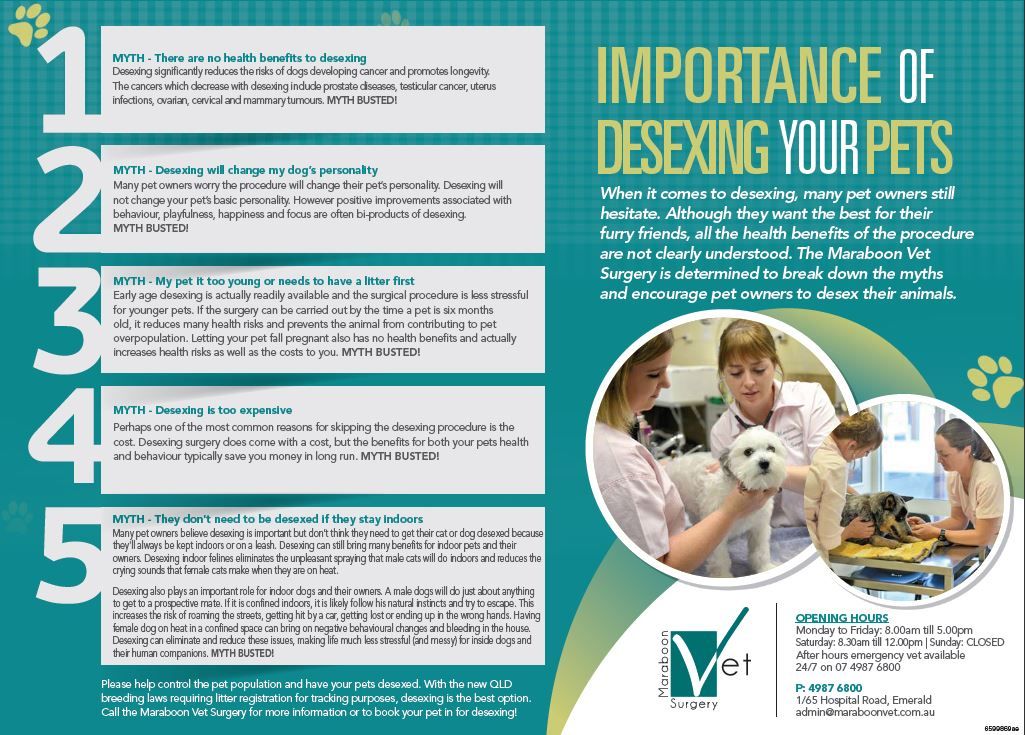When it comes to desexing, many pet owners still hesitate. Although they want the best for their furry friends, all the health beneifts of the procedure are not clearly understood. The Maraboon Vet Surgery is determined to break down the myths and encourage pet owners to desex their animals.
Myth 1: There are no health benefits to desexing.
Desexing significantly reduces the risks of dogs developing cancer and promotes longevity. The health issues which decrease with desexing include prostate diseases, testicular cancer, uterus infections, ovarian, cervial and mammary tumours. MYTH BUSTED!
Myth 2: Desexing will change my dog's personality.
Many pet owners worry the procedure will change their pet's personality. Desexing will not change your pet's basic personality. However positive improvements associated with behaviour, playfulness, happiness and focus are often bi-products of desexing. MYTH BUSTED!
Myth 3: My pet is too young or needs to have a litter first.
Early age desexing is actually readily available and the surgical procedure is less stressful for younger pets. If the surgery can be carried out by the time a pet is six months old it reduces many health risks and prevents the animal from contributing to pet over population. Letting your pet fall pregnant also has no health benefits and actually increases health risks as well as the cost to you. MYTH BUSTED!
Myth 4: Desexing is too expensive.
Perhaps one of the most common reasons for skipping the desexing procedure is the cost. Desexing surgery does come with a cost, but the benefits for both your pets health and behaviour typically save you money in the long run. MYHT BUSTED!
Myth 5: They don't need to be desexed if they stay indoors.
Many pet owners believe desexing is importnant but don't think they need to get their cat or dog desexed because they will always be kept indoors or on a leash. Desexing can still bring many benefits for indoor pets and their owners. Desexing indoor felines eliminates the unpleasant spraying that male cats will do indoors and reduces the crying sounds that female cats make when they are on heat.
Desexing also plays an important role for indoor dogs and their owners. A male dog will do just about anything to get to a prospective mate. If it is confined indoors, it is likely follow his natural instincts and try to escape. This increase the risk of roaming the streets, getting hit by a car, getting lost or ending up in the wrong hands. Having female dogs on heat in a coinfined space can bring on negative behaviour changes and bleeding in the house. Desexing can eliminate and reduce these issues, making life much less stressful (and messy) for inside dogs and their human companions. MYTH BUSTED!
Please help control the pet population and have your pets desexed. With the new QLD breeding laws requiring litter registration for tracking purposes, desexing is the best option. Call the Maraboon Vet Surgery for more information or to book your pet in for desexing.
